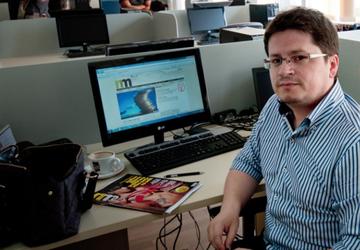
An interview to Milorad Ivanovic, Editor-in-Chief of Newsweek Serbia
(Originally published by the European Center for Press and Media Freedom)
Does it surprise you that the law about access to public information in your country is among the best in the world?
In the last two decades, Serbia is always at the bottom of all possible lists - the unhappiest people in the world, highest corruption in Europe, lowest trust in institutions... So I was pleased to see Serbia on the top on this list - although I was not very surprised. In the region of the Balkans, it is well known facts that individuals and not institutions are the one who can make the best and the worst things. We in Serbia are very lucky to have a very strong, very dedicated Commissioner, Mr Rodoljub Sabic. He is the one who is responsible for this and this is his result.
Do you as an investigative journalist experience openness as a consequence of this law? Or is it just nice words on a sheet of paper?
In the last couple of years, I used the FIA law many times, and I have to admit that the results are more than positive.
Is there an efficient mechanism supporting you when authorities deny access?
My experience shows that institutions are not willing to cooperate in the first instance, but we have a very dedicated Commissioner and he and his team are doing their best to make sure that the law should be followed by the institutions.
Is the law controversial in national politics? Is there a stable majority supporting it?
It would be very interesting to see what will happen once the present Commissioner and his team leave their position and new persons arrive. It will be the first and most important test that will show if this was only a one-time incident or something that Serbian society recognize as benefit and something that is worth fighting for.
This publication has been produced within the project European Centre for Press and Media Freedom, co-funded by the European Commission. The contents of this publication are the sole responsibility of Osservatorio Balcani e Caucaso and its partners and can in no way be taken to reflect the views of the European Union. The project's page

 Serbia and the access to public information
Serbia and the access to public information





 All the contents on the Osservatorio Balcani e Caucaso website are distributed with a
All the contents on the Osservatorio Balcani e Caucaso website are distributed with a  To Top
To Top